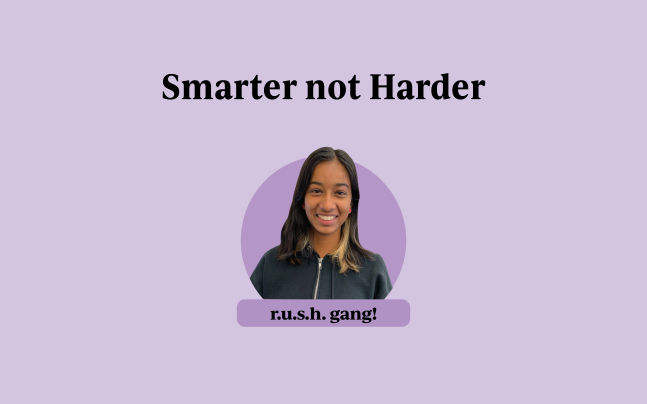
For me, the classes I took were often determined by my peers. Their commentary very consciously influenced my decisions on the classes I took. More often than not, they pushed me to take harder, more rigorous classes, which came with heavier, more stressful workloads.
Due to this, I found myself constantly taking the harder AP or honor classes, and overwhelming myself in the process. There was this built in stigma, possibly in my head, possibly created by my friends and peers, that taking easier classes somehow makes you less hardworking than someone taking the AP version of that class. But taking those challenging classes just to take the harder class may not be worth the extra stress or anxiety.
According to a report from April 2021 from Johns Hopkins University, anxiety disorders are the most common mental health disorder in the United States with about 8% of children and teenagers experiencing an anxiety disorder. Additionally, this has worsened during the COVID-19 pandemic, leaving teenagers with more responsibilities and a heavier burden.
Supplementing this “burden,” going back fully in-person brought about its own challenges, like adapting to a busier schedule and longer days. As this stress increases, students should be doing whatever they can to achieve their goals with a doable workload. To accomplish this, I avoided taking some of the more difficult classes that didn’t pertain to my future goals. Instead, I focused on extracurriculars, hobbies and spending time with my family and friends.
Unfortunately, the stigma behind taking regular classes brought about concerns from my friends and peers who were concerned I was letting a new environment and new friends unmotivate me. I heard things like “you’re going to regret it” and “just take the AP!” The comments didn’t really affect me, but they opened my eyes to the culture of AP students and the belief that taking regular classes somehow meant you were unmotivated.
But this year as I settled into easier classes, I realized there were a lot of benefits of having a lighter workload. For one, I could devote the time I had saved on classes I deemed pointless to my future career, friends and family. For another, I started to enjoy the classes I was actually taking because I was no longer drowning in the workload.
The workload someone can handle obviously varies for each individual person, but lessening that workload shouldn’t be regarded as the inferior option. While it is great to take challenging classes, trashing people for taking easier classes only builds on the environment of stress that often encapsulates school. I wanted to find the right work-play balance that allows me to thrive and learn without becoming overwhelmed. Given the increase in mental illnesses in students, finding this balance should be a priority for students, teachers and parents alike.































![What happened to theater etiquette? [opinion]](https://hilite.org/wp-content/uploads/2025/04/Entertainment-Perspective-Cover-1200x471.jpg)














































![Review: “The Immortal Soul Salvage Yard:” A criminally underrated poetry collection [MUSE]](https://hilite.org/wp-content/uploads/2025/03/71cju6TvqmL._AC_UF10001000_QL80_.jpg)
![Review: "Dog Man" is Unapologetically Chaotic [MUSE]](https://hilite.org/wp-content/uploads/2025/03/dogman-1200x700.jpg)
![Review: "Ne Zha 2": The WeChat family reunion I didn’t know I needed [MUSE]](https://hilite.org/wp-content/uploads/2025/03/unnamed-4.png)
![Review in Print: Maripaz Villar brings a delightfully unique style to the world of WEBTOON [MUSE]](https://hilite.org/wp-content/uploads/2023/12/maripazcover-1200x960.jpg)
![Review: “The Sword of Kaigen” is a masterpiece [MUSE]](https://hilite.org/wp-content/uploads/2023/11/Screenshot-2023-11-26-201051.png)
![Review: Gateron Oil Kings, great linear switches, okay price [MUSE]](https://hilite.org/wp-content/uploads/2023/11/Screenshot-2023-11-26-200553.png)
![Review: “A Haunting in Venice” is a significant improvement from other Agatha Christie adaptations [MUSE]](https://hilite.org/wp-content/uploads/2023/11/e7ee2938a6d422669771bce6d8088521.jpg)
![Review: A Thanksgiving story from elementary school, still just as interesting [MUSE]](https://hilite.org/wp-content/uploads/2023/11/Screenshot-2023-11-26-195514-987x1200.png)
![Review: "When I Fly Towards You", cute, uplifting youth drama [MUSE]](https://hilite.org/wp-content/uploads/2023/09/When-I-Fly-Towards-You-Chinese-drama.png)
![Postcards from Muse: Hawaii Travel Diary [MUSE]](https://hilite.org/wp-content/uploads/2023/09/My-project-1-1200x1200.jpg)
![Review: "Ladybug & Cat Noir: The Movie," departure from original show [MUSE]](https://hilite.org/wp-content/uploads/2023/09/Ladybug__Cat_Noir_-_The_Movie_poster.jpg)
![Review in Print: "Hidden Love" is the cute, uplifting drama everyone needs [MUSE]](https://hilite.org/wp-content/uploads/2023/09/hiddenlovecover-e1693597208225-1030x1200.png)
![Review in Print: "Heartstopper" is the heartwarming queer romance we all need [MUSE]](https://hilite.org/wp-content/uploads/2023/08/museheartstoppercover-1200x654.png)


